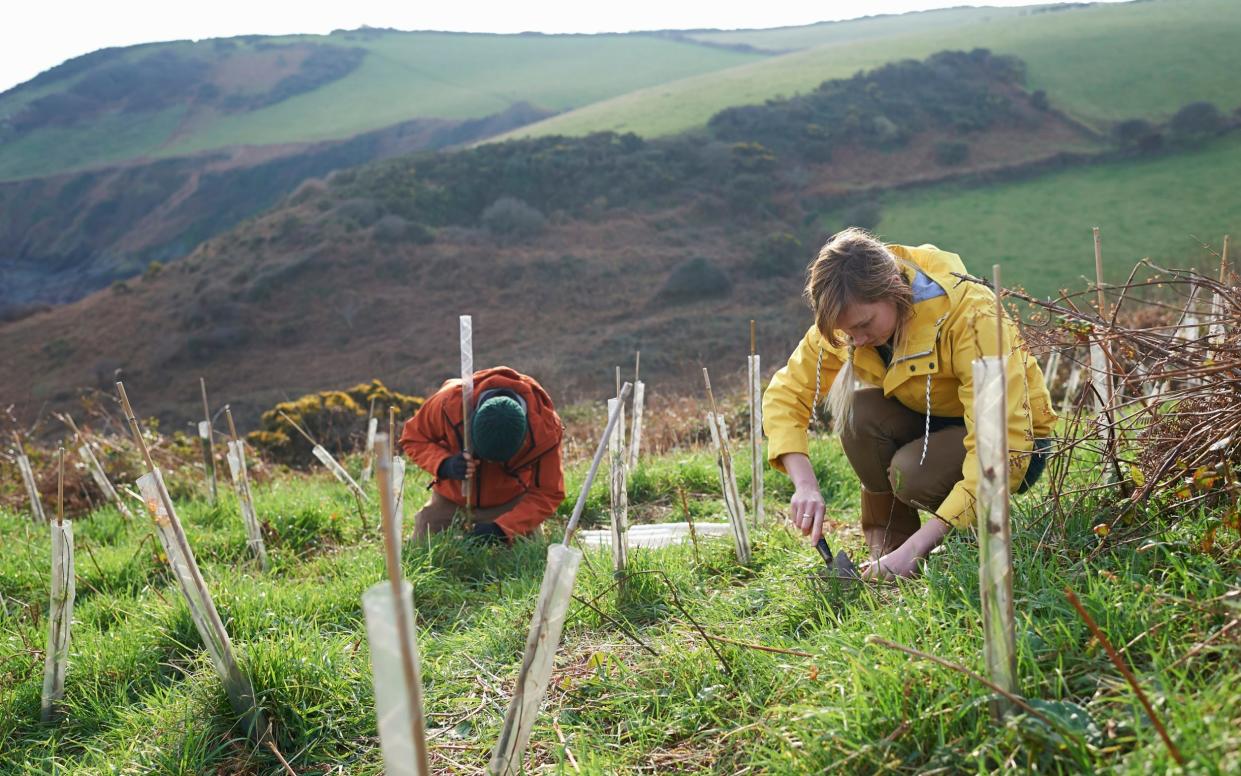Slash red tape to kick-start expansion of forests, Tory MPs say

Ministers should slash red tape to make it easier to plant trees and kick-start a massive expansion of forests, Conservative MPs have said.
In a manifesto to be launched this week, the Conservative Environment Network say that fast tracked access to government cash for tree planting could lead to the “mass afforestation” of the north of England.
While the amount of land covered by woodland has increased in recent years, the UK still lags behind its European neighbours.
In 2022, 10 per cent of England, 15 per cent of Wales and 19 per cent of Scotland were covered by woodland. The figure was 9 per cent for Northern Ireland and 13 per cent across the UK as a whole.
In comparison, 39 per cent of land in the EU was covered by forests in 2021.
In its manifesto, the CEN calls for the establishment of “Forestry Creation Zones in target locations around England”, modelled on the Government’s investment zones which offer tax reliefs to attract businesses to set up within their bounds.
“While recent efforts by the government to designate new national forests are certainly welcome, the entrepreneurial action we require for tree-planting objectives will require a less prescriptive approach,” the manifesto says.
“Taking a leaf out of its own book, the government should copy the model it has created with investment zones to establish a joined up approach to tree planting in areas of the UK most suited to it, catalysing private sector action and investment in the process.
“Tree planters, commercial and otherwise, wishing to work in these designated Forestry Creation Zones would benefit from a streamlining of the much-maligned application process for woodland creation and be fast-tracked toward the relevant funding pots across the forestry supply chain.”
The manifesto calls for “proactive identification of the most suitable areas” for new woodland and “outreach to land managers located within them to promote the available grants and financial opportunities”. It says that the zones would “likely skew towards parts of the north of England where the land is most suited to mass afforestation and less suited to agriculture”.
Vital habitats
Endorsing the plan, the former environment secretary Theresa Villiers said: “Trees and woodlands are integral to so much of what makes this country the great place it is, from being vital habitats for our precious wildlife to their natural beauty.
“They are also a key component of our efforts to tackle climate change and restore nature, which is why the government has rightly adopted ambitious targets to boost tree planting and forest cover across the country.
“But we are falling short of hitting those targets and current efforts to meet them are insufficient. It’s time for a bold new approach. Stripping away red tape and making it much easier for landowners to access funding for planting the millions of trees we need would really boost our environmental mission.”
Trudy Harrison, the Tory MP for Copeland in Cumbria, said: “By designating many more areas as suitable for mass tree planting and woodland creation and streamlining funding applications for these areas, we can take a big step towards boosting biodiversity and locking up millions of tonnes of carbon.”
A spokesman for the Department for Environment, Food and Rural Affairs said: “We are making good progress towards ambitious targets to increase tree canopy and woodland cover in England to at least 16.5 per cent by 2050. Last year we planted 3,600 hectares of new woodland and trees outside of woodland, the highest planting rate for nearly a decade.
“Since the publication of our Environmental Improvement Plan last year we have funded the planting of almost five million trees across England. We continue to work with landowners and managers in establishing newly-planted trees which are resilient, as well as taking action to address pests, pathogens and tree diseases.”

